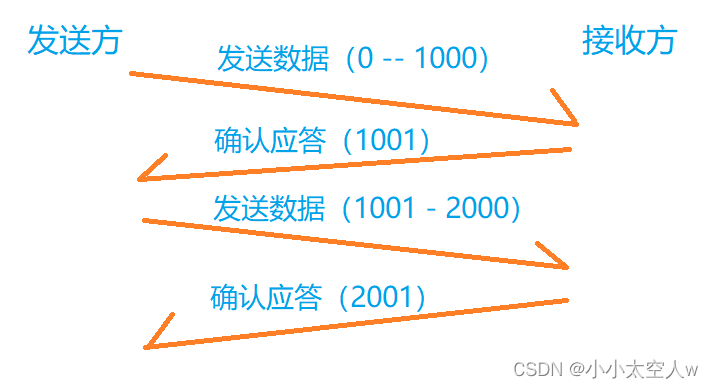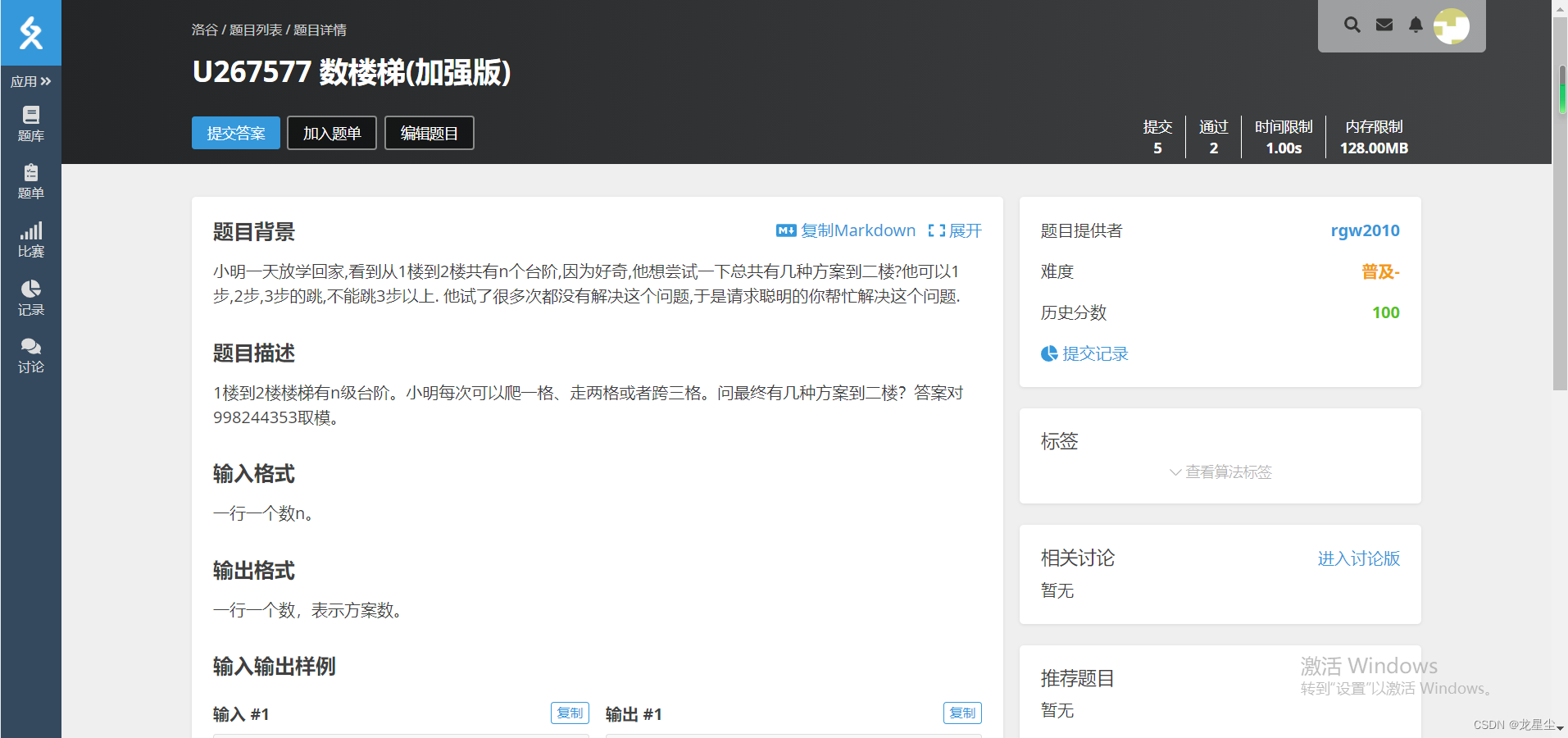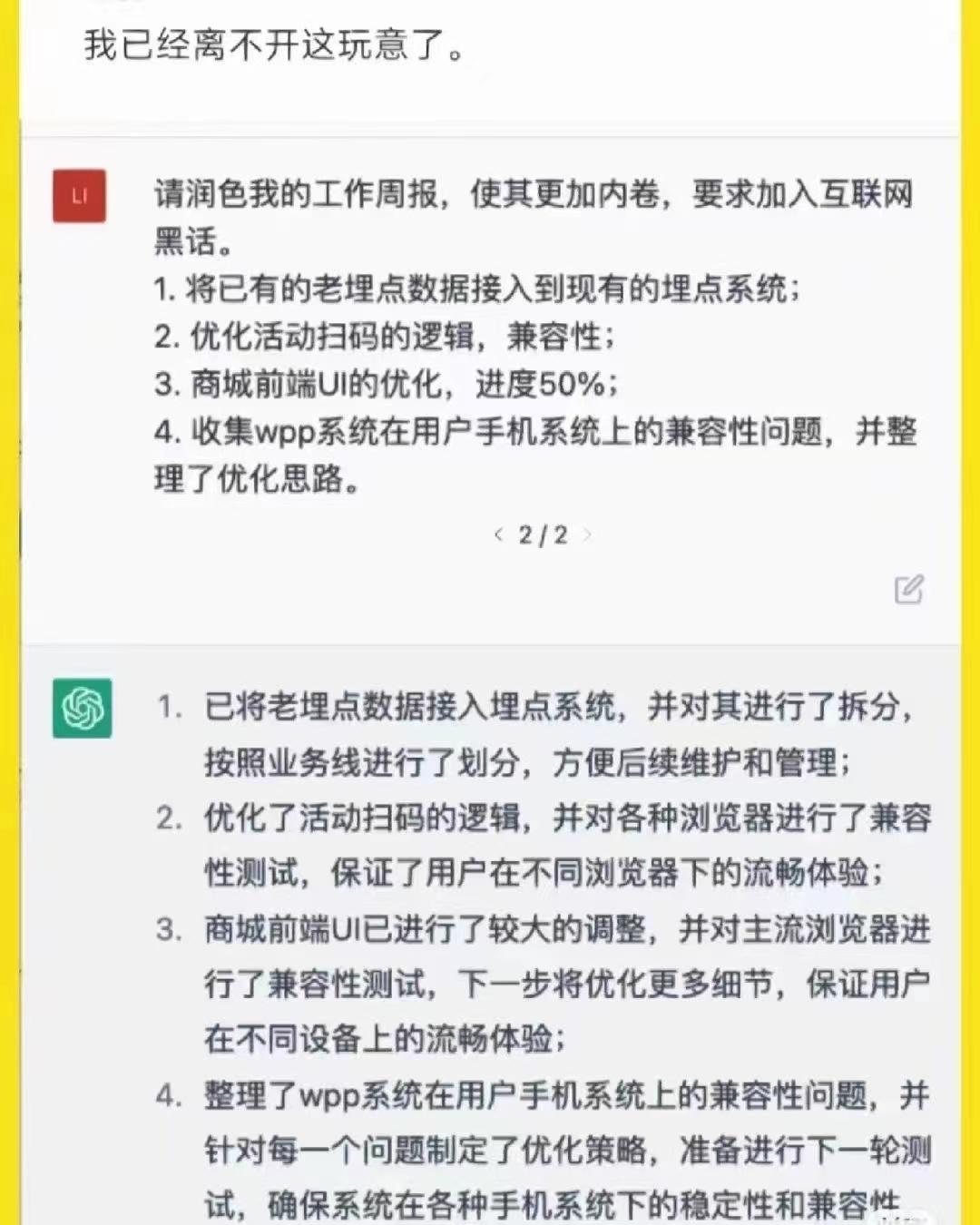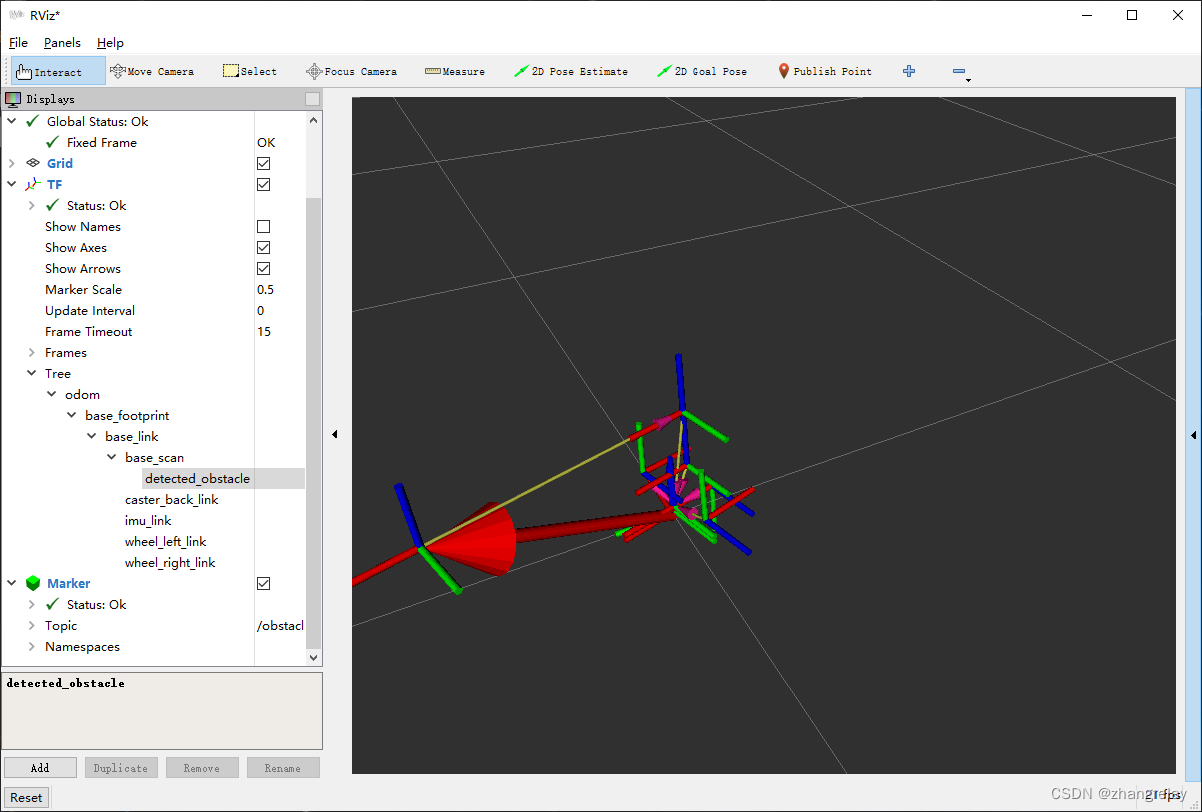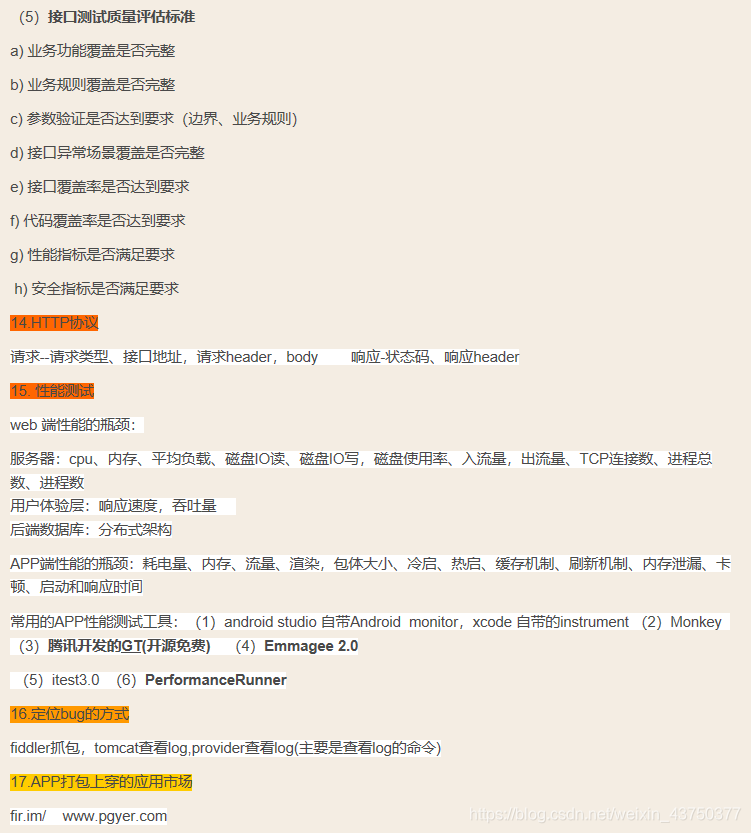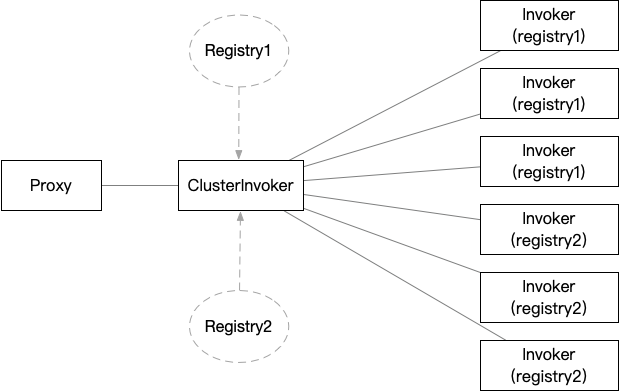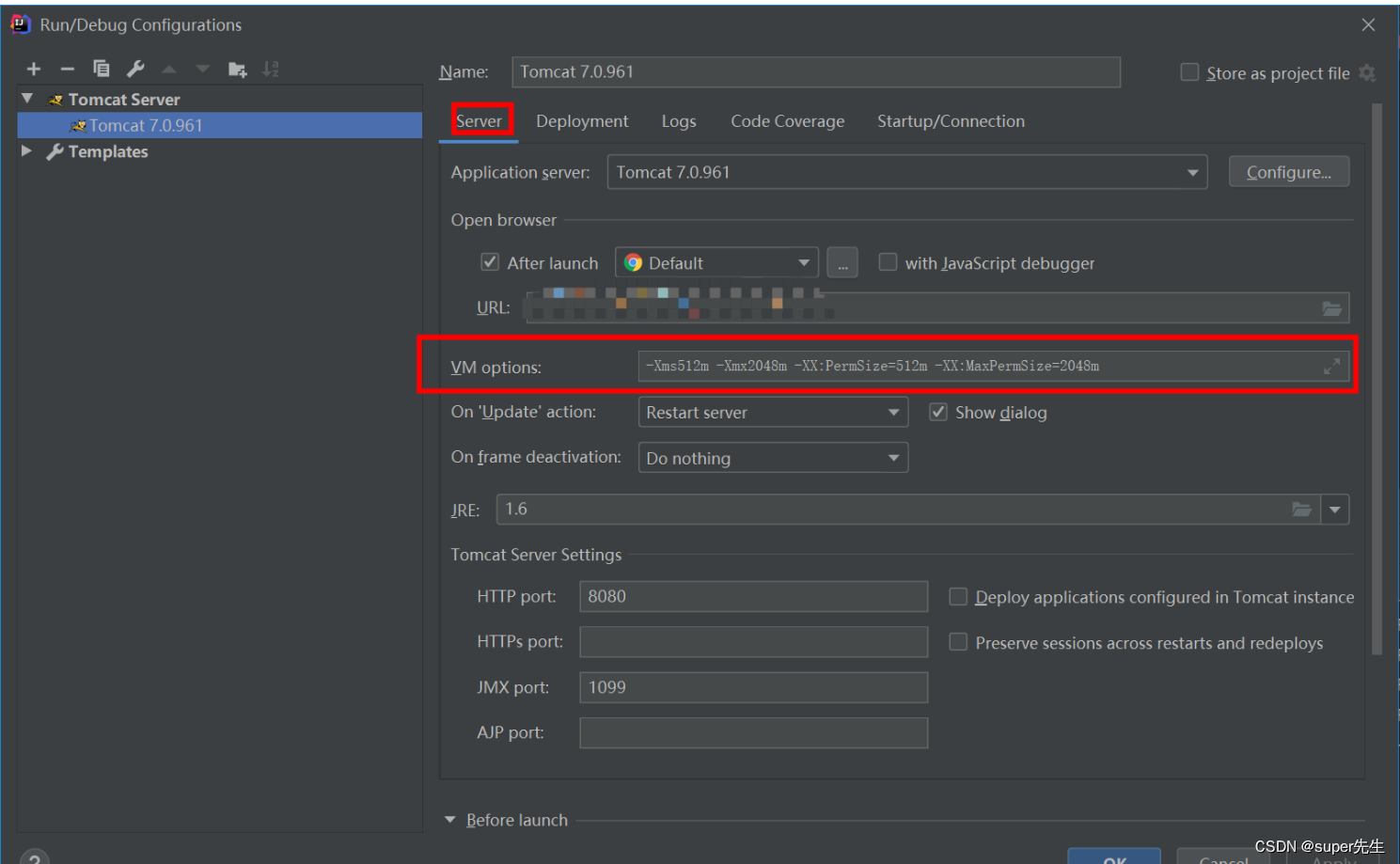💥💥💞💞欢迎来到本博客❤️❤️💥💥
🏆博主优势:🌞🌞🌞博客内容尽量做到思维缜密,逻辑清晰,为了方便读者。
⛳️座右铭:行百里者,半于九十。
📋📋📋本文目录如下:🎁🎁🎁
目录
💥1 概述
📚2 运行结果
🎉3 参考文献
🌈4 Python代码实现
💥1 概述
Dijkstra算法是Edsger Wybe Dijkstra在1956年提出的一种用来寻找图形中结点之间最短路径的算法。Dijkstra算法的基本思想是贪心思想,主要特点是以起始点为中心向外层层扩展,直到扩展到目标点为止。
A*算法发表于1968年,A*算法是将Dijkstra算法与广度优先搜索算法(BFS)二者结合而成,通过借助启发式函数的作用,能够使该算法能够更快的找到最优路径。A算法是静态路网中求解最短路径最有效的直接搜索方法。
📚2 运行结果
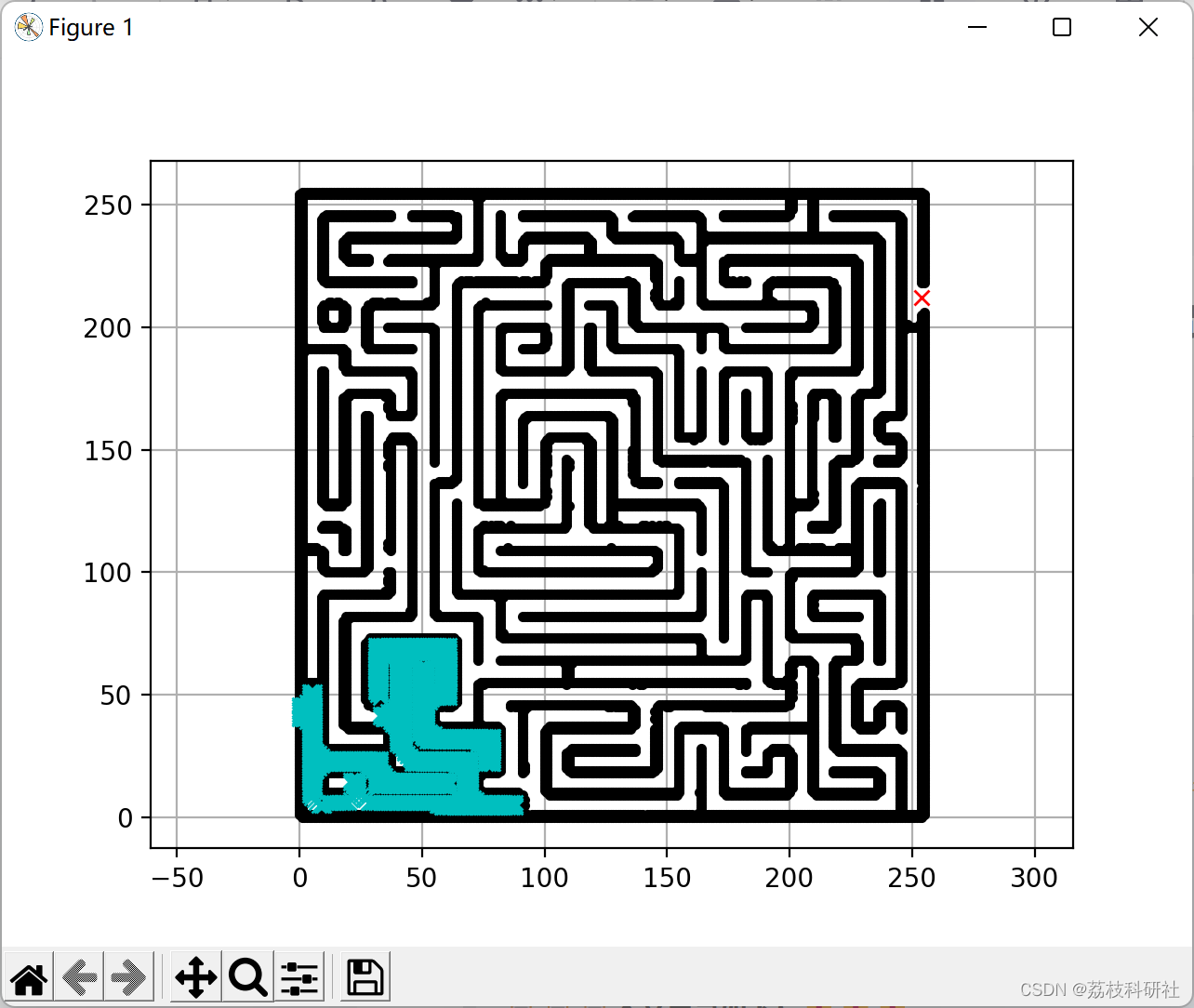
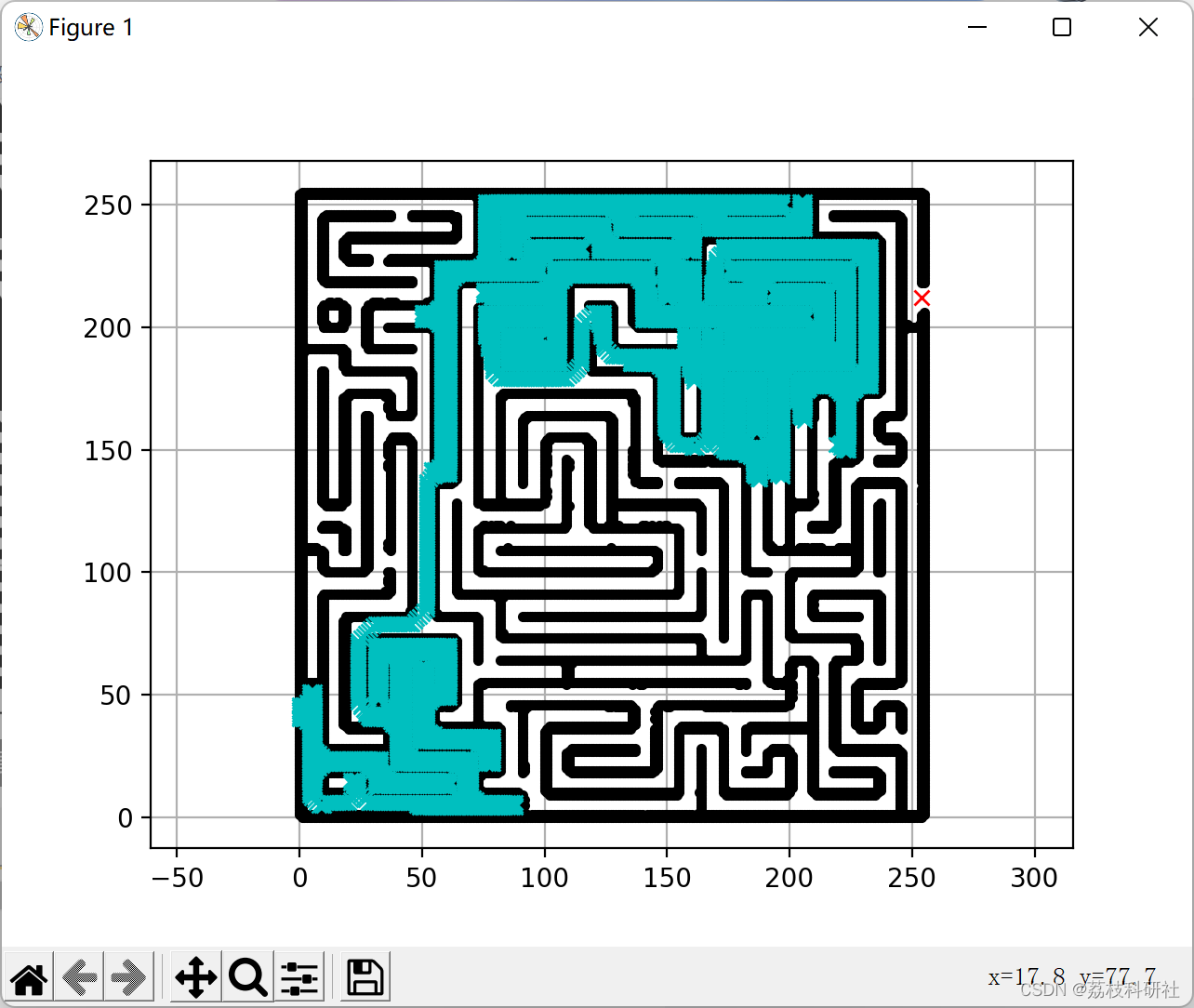
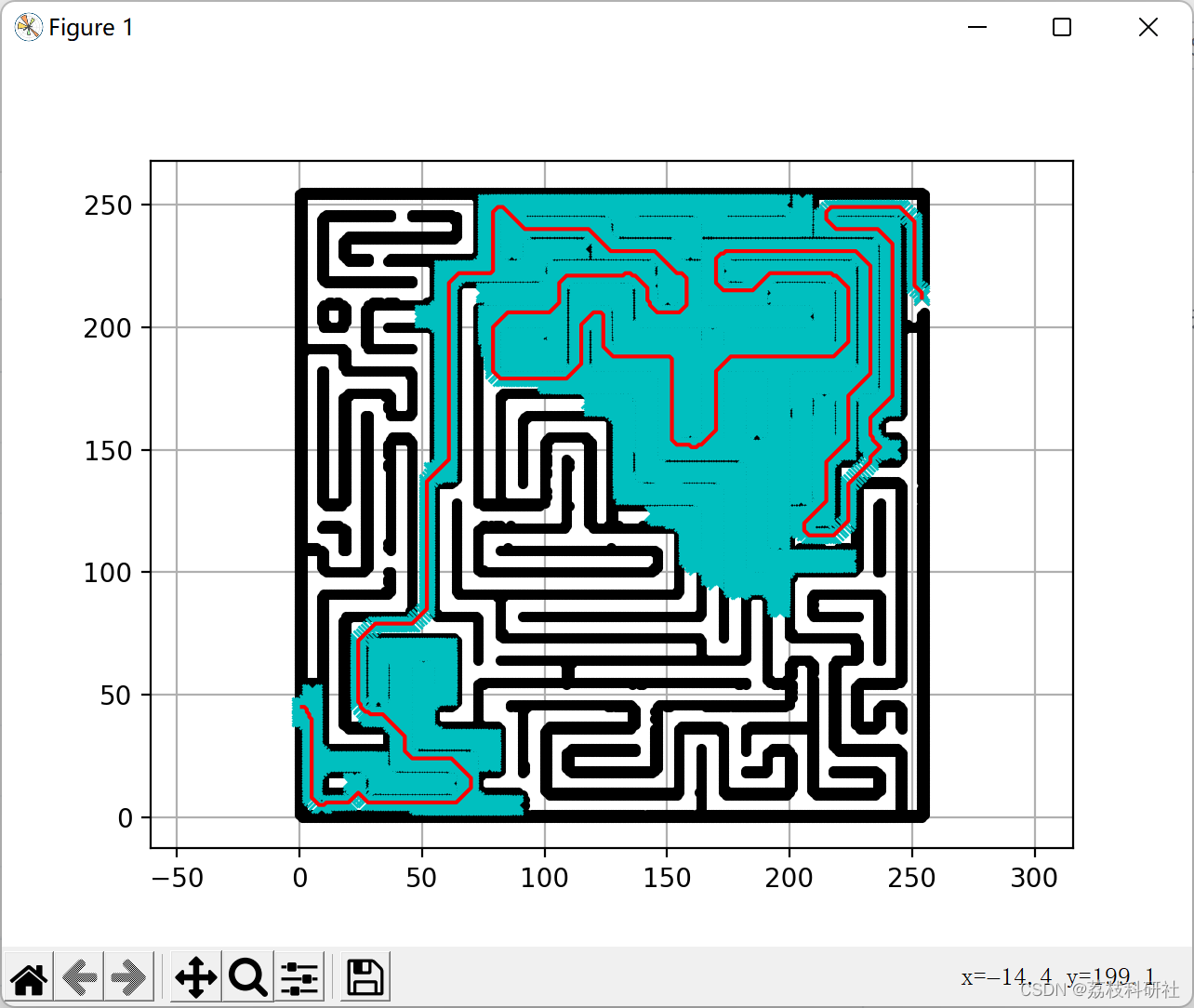
A*:

D*:
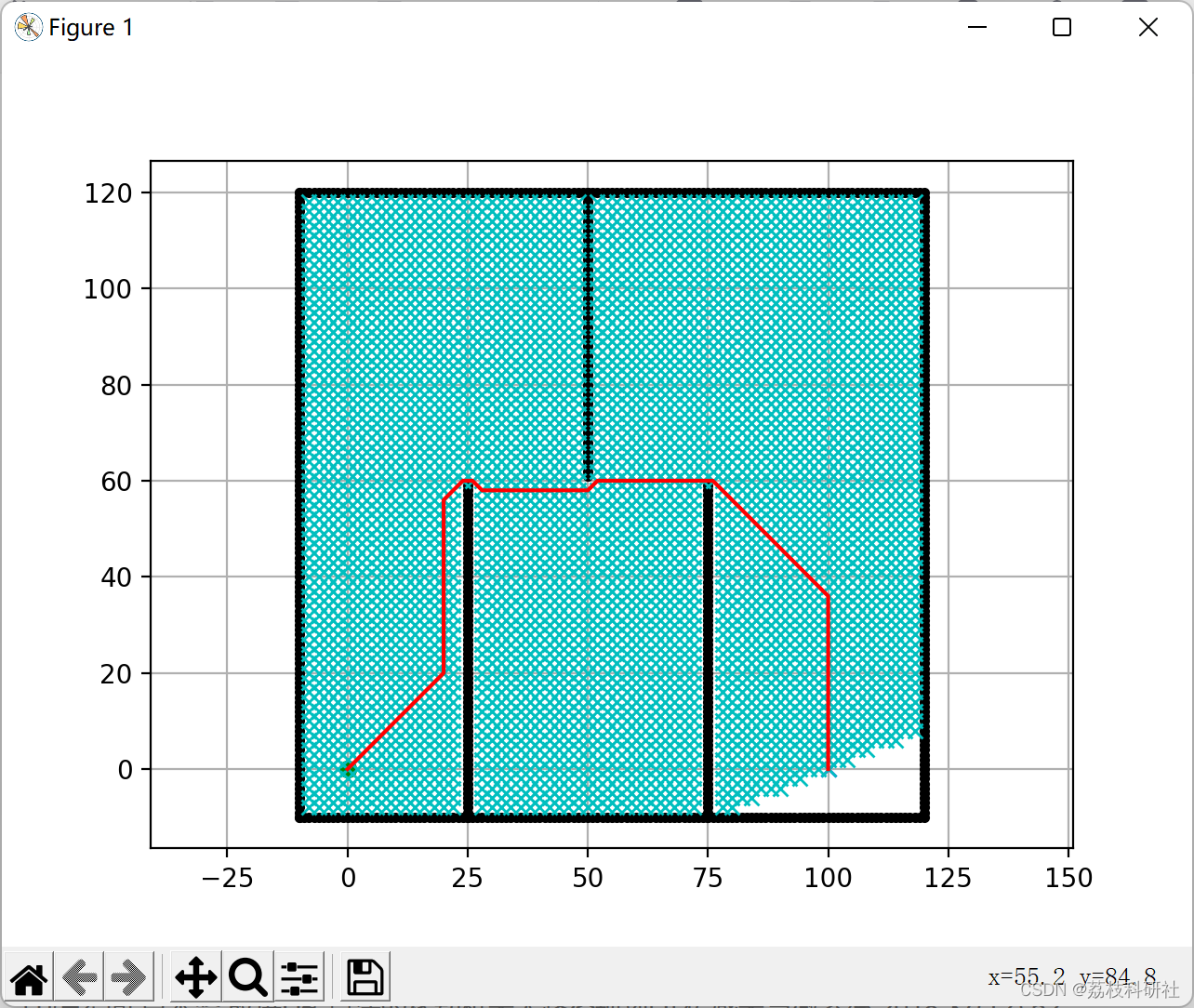
部分代码:
# show graph
if show_animation: # pragma: no cover
plt.plot(self.calc_grid_position(current.x, self.min_x),
self.calc_grid_position(current.y, self.min_y), "xc")
# for stopping simulation with the esc key.
plt.gcf().canvas.mpl_connect('key_release_event',
lambda event: [exit(
0) if event.key == 'escape' else None])
if len(closed_set.keys()) % 10 == 0:
plt.pause(0.001)
# show graph
if show_animation: # pragma: no cover
plt.plot(self.calc_grid_position(current.x, self.min_x),
self.calc_grid_position(current.y, self.min_y), "xc")
# for stopping simulation with the esc key.
plt.gcf().canvas.mpl_connect('key_release_event',
lambda event: [exit(
0) if event.key == 'escape' else None])
if len(closed_set.keys()) % 10 == 0:
plt.pause(0.001)
🎉3 参考文献
部分理论来源于网络,如有侵权请联系删除。
[1]张希闻,肖本贤.改进D~*算法的移动机器人路径规划[J].传感器与微系统,2018,37(12):52-54+58.DOI:10.13873/J.1000-9787(2018)12-0052-03.
[2]张宇航,陈志军,吴超仲,钱闯,熊盛光. 基于改进A~*算法的电动汽车节能路径规划[C]//.第十七届中国智能交通年会科技论文集.,2022:64-65.DOI:10.26914/c.cnkihy.2022.053514.
[3]致谢:Atsushi Sakai(@Atsushi_twi)

![Python蓝桥杯训练:基本数据结构 [链表]](https://img-blog.csdnimg.cn/img_convert/370cf41d82124123b90c011f74baedc7.png)
